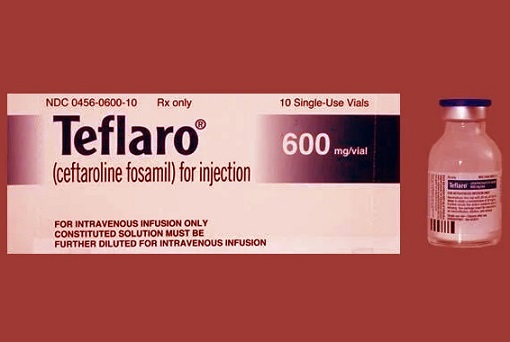Nikhil Prasad Fact checked by:Thailand Medical News Team Apr 18, 2025 1 day, 4 hours, 55 minutes ago
Medical News: In a remarkable scientific development, researchers from Brazil and Italy have discovered that a common FDA-approved antibiotic, ceftaroline fosamil, might do more than just fight bacteria. It may also help in stopping the replication of the SARS-CoV-2 virus, the pathogen responsible for COVID-19.
 Common Antibiotic Shows Promise in Halting COVID-19 Virus Replication
Common Antibiotic Shows Promise in Halting COVID-19 Virus Replication
This discovery comes from a collaborative study involving scientists from the Universidade Federal de Santa Maria, Instituto Oswaldo Cruz (Fiocruz), Universidade de Brasília, University of Campinas (UNICAMP), and the University of Padova in Italy. Using advanced computational simulations and laboratory experiments, the researchers tested how ceftaroline fosamil and its metabolites interacted with two key SARS-CoV-2 enzymes—Mpro and PLpro—which are essential for the virus to replicate. This
Medical News report explores how the study not only showed strong antiviral activity in lab-grown human lung cells, but also points toward a new direction in drug repurposing.
A New Purpose for a Familiar Drug
Ceftaroline fosamil is a fifth-generation cephalosporin antibiotic known for treating drug-resistant bacterial infections like MRSA. However, what makes it special in this study is a unique chemical structure it contains—the 1,2,4-thiadiazole ring. This ring has sulfur atoms that are reactive against certain enzymes, including those used by viruses to hijack human cells.
Researchers used molecular docking and dynamic simulations—types of computer modeling—to predict how well ceftaroline and its broken-down forms (called metabolites M1, M2, M1H, M2H, open-M1H, and open-M2H) could stick to and inhibit the viral enzymes Mpro and PLpro. These enzymes help the virus chop up large proteins into functional pieces needed for replication. In these simulations, several ceftaroline derivatives showed strong binding ability, especially with Mpro, but in real-life lab tests PLpro appeared more vulnerable to the drug’s effects.
Potent Inhibition of Virus in Human Lung Cells
To back up the computer data, scientists tested ceftaroline in vitro using human lung epithelial cells (Calu-3) infected with SARS-CoV-2. The results were striking. When the drug was added 12 hours after infection, viral replication dropped significantly—even at submicromolar concentrations. The half-maximal effective concentration (EC50) for ceftaroline was lower than the inhibitory concentration (IC50) observed in isolated enzyme tests, suggesting that the drug may work through multiple antiviral pathways beyond just PLpro or Mpro.
Additionally, pharmacokinetic data shows that ceftaroline metabolites reach therapeutic concentrations in the lungs and bloodstream when administered intravenously, reinforcing the drug’s potential real-world effectiveness. Interestingly, ceftaroline had already been used in COVID-19 patients in Italy, though only for treating bacterial co-infections. This study raises the possibility that it may have unknowingly
helped fight the virus itself.
Why the Sulfur Ring Matters
What gives ceftaroline its potential antiviral punch is the sulfur in its 1,2,4-thiadiazole ring. The virus’s proteases (Mpro and PLpro) rely on cysteine residues to cleave viral proteins. The sulfur in ceftaroline interacts with these cysteine sites, potentially forming bonds that disrupt enzyme activity. In several molecular docking tests, this sulfur-to-sulfur (S···S) interaction was just the right distance to allow for such binding, particularly with the metabolite known as M1H.
Detailed chemical simulations showed that M1H, open-M1H, and M2H bound especially well, with binding energies as low as −8.5 kcal/mol and optimal atomic distances. These values mean the drug fits snugly into the enzyme sites, interfering with their function.
A Multimodal Antiviral Agent
The fact that ceftaroline showed stronger effects in live-cell tests than in isolated enzyme assays suggests that it might hit multiple viral and host targets at once. Similar to how drugs like remdesivir and favipiravir act on both viral polymerases and human immune responses, ceftaroline may operate through several mechanisms. This complexity could make it harder for the virus to develop resistance.
Importantly, the study also confirms that ceftaroline does not harm human lung cells at the concentrations tested, indicating a good safety margin. This paves the way for further research into using the antibiotic as part of COVID-19 treatment protocols, especially given its approval status and availability in hospitals worldwide.
Conclusion
The new research provides convincing evidence that ceftaroline fosamil and its metabolites can inhibit SARS-CoV-2 replication by targeting essential viral enzymes. The study not only demonstrates robust in silico and in vitro antiviral activity but also suggests broader mechanisms of action. With its already approved status and known safety profile, ceftaroline emerges as a strong candidate for drug repurposing in COVID-19. However, further clinical trials are necessary to confirm its effectiveness in patients. If confirmed, this antibiotic may become a valuable dual-purpose weapon—fighting both bacteria and viruses—in the ongoing pandemic.
The study findings were published in the peer reviewed journal: Viruses.
https://www.mdpi.com/1999-4915/17/4/491
For the latest COVID-19 News, keep on logging to Thailand
Medical News.
Read Also:
https://www.thailandmedical.news/news/low-dose-naltrexone-could-be-the-key-to-reversing-immune-dysfunction-in-long-covid-patients
https://www.thailandmedical.news/news/azithromycin-emerges-as-a-potential-covid-19-treatment-for-patients-with-lung-conditions-like-ipf-and-copd
https://www.thailandmedical.news/news/tmn-exclusive-can-lysine-possibly-prevent-sars-cov-2-persistence-and-also-help-those-with-long-covid-and-the-vaccinated
https://www.thailandmedical.news/articles/coronavirus
https://www.thailandmedical.news/articles/covid19-drugs
https://www.thailandmedical.news/pages/thailand_doctors_listings
